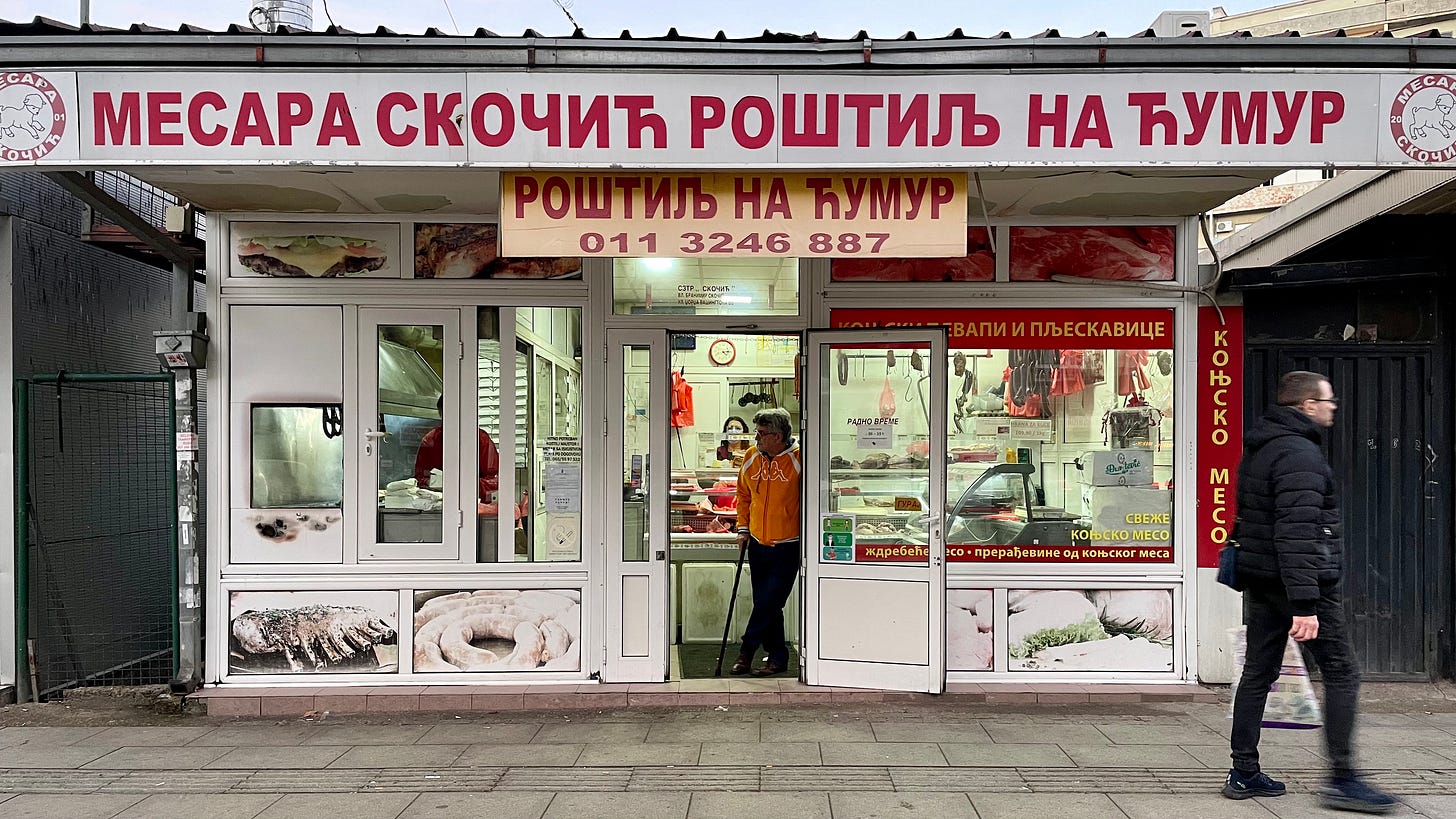Welcome capital formation in all its flavors
To save the Serbian dinar, Serbian entrepreneurs must be allowed to transact with the world using cryptocurrencies
Serbia is a mad, landlocked, place in the Balkans that has faced a string of demographic and economic calamities over the past few decades. In a new, multipolar, world, it also finds itself at an interesting strategic juncture. It’s seemingly forever stuck in a halfway home between friendship with Russia and China and edging closer to integration with its geographic neighbor and main trading partner, the European Union and its member countries.
In trade terms, Serbia is also a minnow, running a persistent current account deficit despite being in a middle-income development stage, which suggests structural issues such as under-investment and relatively low productivity.

When its highly-educated population, with deep groundswell educational capabilities in IT and engineering, meets the prospect of competing in an underinvested and structurally low productivity marketplace for work, the result is inevitably demographic catastrophe. Indeed, highly productive people have historically opted to leave the country to pursue better opportunities abroad, creating a brain-drain.
Current account deficits also put exogenous pressure on the local currency, particularly one with a fixed exchange rate policy such as Serbia. With an increase in government expenditure or in foreign direct investment in a fixed exchange rate regime, the central bank has to accumulate foreign reserves to maintain its commitment.

This is only made possible by continuously high levels of foreign direct investment and the presumption that capital mobility is unrestrained, if we follow a simplistic Mundell-Fleming model for Serbia as a small, open economy with effectively fixed-exchange rates.
The inflow of FDI speaks to the government’s success in liberalizing capital controls over time and creating conditions to attract investment into the country. However, to the extent these are based on wage arbitrage (you could create an IT development shop in Belgrade at a fraction of the cost relative to one in Berlin, for equivalent levels of competence and English language skills), this effect is likely to be short-lived.
Specifically, as more capital flows in to seek technical talent, the economy will eventually face labor shortages in fast-growth areas of the economy and FDI flows may reverse, putting pressure first on central bank reserves, as it sells them down to support the exchange rate, followed by the exchange rate itself.
In fact, under fixed exchange rate conditions, the Serbian economy has no monetary policy degrees of freedom at all to begin with, as open market operations in domestic currency would merely shift the allocation of balance sheet assets as capital leaves the country. Releasing the peg would threaten to devalue the dinar. While making it more competitive for export industries, as long as they lag in factor productivity, the benefits are likely not going to overcome the downsides to higher cost of imports and skyrocketing inflation.
Recently, a post went viral in legal circles in Serbia, which suggests that an interpretation of the law means Serbian businesses would be prohibited from transacting in cryptocurrencies of any kind1. This interpretation would effectively introduce new capital controls on an otherwise liberalized economy. If it’s given wings and precedent, it would result in a disastrous, short-sighted and self-defeating outcome. Both the economy and the government that survives thanks to it would be dealt huge blows.
A better alternative is minimalism of the Swiss-DLT variety. Stop treating cryptocurrencies like alien technology and just recognize them pragmatically in existing categories where such categories exist. Where they don’t, create simple commodity-like categories to recognize reality post-fact: people use Bitcoin to escape volatility and capital destruction, people use Ether to build complex transactions with no intermediary.
There are few country/growth combinations as compelling as Serbia + blockchain industry. Serbian presence is overweighted in crypto already, relative to the size of its economy, driven by flagship projects such as DefiSaver or Tenderly. These, in turn, create knock-on positive externalities, as they train developers who can then go out and launch their own companies and create new business opportunities.
It’s an industry that allows companies to raise FDI at much lower cost and much higher speed than, for instance, raw material extraction, and certainly creates much longer-lasting positive factor-movements. In other words, a crypto developer may end up later on working in a FinTech company or in other IT sectors with opportunity.
For a country that has lagged in financial technology development for so long, crypto represents a leapfrog opportunity not unlike mobile payments in Sub-Saharan Africa. However, until recently, the amount of capital raised for blockchain startups has not reflected the full potential of the sector in attracting investment into Serbia.
Central banks in general have a tendency to view cryptocurrencies with suspicion. This is understandable, as the prospect of ‘free banking’ effectively curtails the central bank’s ability to enact decisions, even bad ones. However, I believe that central banks should open to the idea that people will choose their own currency and businesses will use the easiest / cheapest means of payment to transact and that this is largely ok. When the central bank is forced to compete in the market for money, the strength of a government’s sovereign currency can only stand to improve.
Foreign direct investment starts with capital mobility. Therefore the Serbian government needs to let go of a perceived ability to control flows of cryptocurrencies in businesses, particularly if it aims to stabilize the exchange rate of the dinar in the long-term.
If the Serbian National Bank wants FDI to continue and if it values the robustness of the Serbian Dinar, it just needs to let Serbian entrepreneurs transact with the world as they please.
Source: Porezi i Racunovodstvo Online (paywall)



